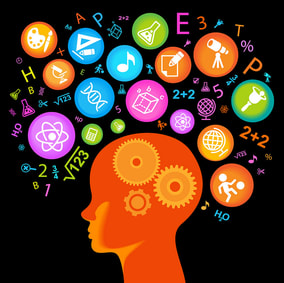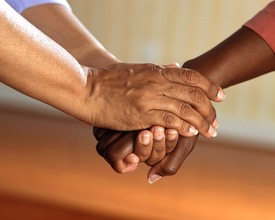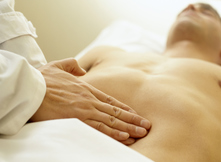 Don’t forget about physical exercise Believe it or not, when you’re exercising your body, you’re exercising your mind as well. Aerobic exercise gets your blood pumping, which increases the oxygen going to your brain and lowers your risk of disorders such as diabetes and cardiovascular disease that can lead to memory loss. If you can, start with some exercise in the morning. This can clear your head right off the bat to stay focused and alert during the day. Exercises that require coordination are especially helpful for keeping the mind active such as simply throwing a ball back and forth. Make sure you’re sleeping Sleep is one of the best ways to make sure your brain and memory are in tip-top shape on a daily basis. To get the most out of your sleep, aim for 7.5-9 hours every night. Make sure to shut off the electronics at least an hour before bed to help the mind shut off as well. Try to limit your caffeine and alcohol intake earlier in the day. Both can result in a shallow sleep. Keep your brain stimulated Research has shown that keeping mental stimulation as we age is very important for lowering the risk of dementia. Stay social, interact with others, learn new skills, play mind-exercise games like crossword puzzles or Sudoku. Interacting with others and continuing to learn is vital for keeping the brain healthy at any age. Be aware of your stress Chronic stress can not only make someone miserable, but also cause serious long term effects. Stress over time has been shown to destroy brain cells and damage the area of the brain that creates new memories and recalls past ones. To avoid memory loss, minimize your stress. Don’t take on too many tasks if they overwhelm you, sometimes it is ok to say no. Make sure you have outlets to relieve stress whether it is physical exercise or talking with someone about your frustrations. Don’t forget about your superfoods Certain superfoods have shown to be significant in preventing memory loss. Make sure to get your fruit and vegetable servings in, many are filled with antioxidants that help protect your brain cells. Eat more foods with omega-3 fatty acids such as salmon, tuna and foods cooked with olive oil. Green tea is another option that has powerful antioxidants to protect from brain damage. Your memory is important at any age. Start incorporating these healthy habits to keep a strong memory for years to come. And don't underestimate the power of Acupuncture to stimulate the mind either! Sources http://bit.ly/1SzWG6s http://bit.ly/20BNwg4  Arthritis was actually what brought my mom to try Acupuncture for the first time. She didn't know it was arthritis at the time, it was so debilitating and intense her medical doctors actually thought she had Multiple Sclerosis (remember that we didn't quite have the sophistication in the early 80's that we do now for clarifying that diagnosis). She ended up seeking Acupuncture from Dr. Yat Ki Lai who helped decrease her pain and become functional again, it seemed truly miraculous, and for most of my life my mother religiously made weekly treks into SF China Town to seek Dr. Lai's treatments. Only later did we realize that her debilitating pain was due to a combination of severe stress and severe arthritis. While Dr. Lai was the most active form of treatment she sought, she pursued the combination of interventions below and I firmly believe that each played an important role in her recovery. This list is based on outside sources, but I can certainly say from practical experience that it works! Exercise For those with arthritis, exercise, no matter how little you do, is one of the best natural treatments. For those with severe arthritis, even the smallest amount of walking can make a difference. Swimming is one of the best forms of exercise for those with arthritis because it puts the least amount of impact on the joints. Strengthening exercises are also recommended to keep muscles and joints strong. Acupuncture One of the most common reasons people seek out acupuncture is for arthritis relief. Acupuncture can help relieve pain from arthritis and increase blood flow and circulation, reducing inflammation. Through the specific placement of needles on acupuncture points on the body, acupuncture realigns the body back to balance. Capsaicin Cream Made from the chemical that gives chili peppers their heat, Capsaicin cream has been known to relieve arthritis pain. The cream works by decreasing the body’s pain receptors and as a result, lessening the overall pain caused by arthritis. The cream can be bought without a prescription at your local drug store. Fish Oil Fish oil is beneficial for numerous reasons, one of them being its anti-inflammatory properties. Because it is rich in omega-3 fatty acids, trials have found that the oil can reduce morning stiffness and the need for pain medication for those with arthritis. Fish oil is a supplement that is safe and recommended to take every day for the most beneficial effects. Mind-Body Mind-body techniques like meditation, relaxation and tai chi have been seen to improve overall quality of life for those with arthritis. Tai Chi is a martial art that involves slow, easy movements along with deep breathing. This exercise can improve the body’s motion and physical fitness without being too demanding on the joints and muscles. Although meditation and relaxation do not necessarily reduce pain, they have been found to improve mood and health in arthritis patients dealing with chronic pain. Diet Studies have shown that some patients benefit from changes in their diet by eliminating food that may contribute to their arthritis pain. By removing allergens from the diet, overall inflammation can be reduced. Common diets that have been seen to be beneficial include a mediterranean diet rich in nuts, fish, vegetables, fruit and olive oil. Foods that are not recommended include red meat and dairy as those can cause inflammatory reactions. So, if you have Arthritis, please consider engaging in as many of these interventions as you can! The combination can be truly magical - and I can say that from practical experience! If you want to know more please don't hesitate to contact me or book online anytime. Yours in Health - Rebecca Sources: http://bit.ly/1YtHTib  When I was getting my Master's in Acupuncture and Oriental Medicine long long ago, one of my favorite classes was Japanese Acupuncture. We learned Manaka style Acupuncture focusing on the Extraordinary Meridians, which are 8 extra channels that are considered to be older and deeper to the body than the 12 main meridians that we feel in the pulse. Because they are older and deeper, we assess them using Hara or abdominal diagnosis and, in Manaka Acupuncture, use ion pumping cords to balance them. Something which I can explain another time! Sound like gibberish? Yes, I know, but its amazing stuff that I have always loved. Whether you know it or not, I still ALWAYS use acupoints to treat extraordinary meridians in all of my treatments because I feel that strengthening those older deeper channels leads to better efficacy (I hope you'll agree!). In that class I learned about Kiiko Matsumoto - another Japanese acupuncture master who could make many ailments melt away. I have always wanted to learn from her, but time and life has interfered until FINALLY last month I got to take a class with her and it didn't disappoint. What is KMS or Kiiko Matsumoto Style Acupuncture? Kiiko is a true scholar - she reads ancient Chinese acupuncture texts using original dictionaries from the Han dynasty or before, depending on what she is learning because as you may imagine, things were different then. Just like if someone says "cool" to you now, you know that it means "that's awesome" and not "its cold," Chinese language in the Han dynasty versus today was the same - while we might read the name of an acupuncture point in Chinese and think we understand the reference, without the proper interpretation we may be wrong - this is where Kiiko shines and imparts incredible deep knowledge. She uses this depth to broaden the use of specific points and channels, enhancing and reshaping what we already know from Traditional Chinese Medicine or TCM, and in so doing increases our efficacy. Coming from a Japanese tradition, she also does not rely on tongue and pulse (gasp!!). She uses Hara diagnosis (abdominal palpation) and channel palpation and when the points and connections are right the change is instantaneous. Instant feedback from modifications in tenderness and sensation, instant gratification, sounds very modern for an ancient medicine, yes?? To me, this is another area of genius in Japanese Acupuncture - the ability to immediately get feedback about what is working and what isn't in treatment by understanding what specific patterns of tenderness are telling you. One of the other hallmarks of Japanese Acupuncture is using extra fine needles and emphasizing comfort and a preferred lack of strong needle sensation. This was something I adopted from my early Manaka style classes long ago that I have always tried to incorporate into treatment. Lets Feel Your Tummy! So what does this mean for treatment at All Ways Well? It means I might want to feel your tummy at your next treatment in order to use these new Kiiko tools in my toolbox! Sometimes the abdomen will reveal things we have missed before, sometimes it may not tell us anything new or lead to changes in treatment, but if you're game to try, let me me feel your tummy and see what comes! I won't be able to take another class in Kiiko's style until next year, but that means I have lots of time to perfect the treatments I learned this year. In particular, if you have abdominal pain, neck pain, SI joint (low back/sacrum pain) or if you have ever been electrocuted (I know, crazy one right??) I will be extra excited to try out these new treatment methods and I hope you will be too! Questions? Concerns? Let me know! I would be overjoyed to discuss what I am starting to understand about this exciting system of Acupuncture! And I am extra excited to bring these new tools to my practice and to YOUR treatments to enhance both comfort and success. Looking forward to feeling your tummy on the table, ~Rebecca  Addiction is something I understand very well. My grandfather and my uncle both died of alcoholism - my grandfather of a tragic accident related to alcohol and my uncle of his 3rd alcoholic stroke at 36 years of age. If you're addict, your addiction touches the lives of everyone in your circle whether you realize it or not and sometimes the effects can reverberate for generations. Growing up around that drug and alcohol abuse was never on the table for me, but my mother always warned me that "addiction runs in the family." While I don't agree that addiction is a genetic trait, I can tell you that sugar is my drug of choice and I struggle with it all the time. After an eating disorder in high school which led to digestive issues, I still struggle with emotional eating at times and sugar really does feel like an addiction to me. I struggle to stay away from it, I crave it if I'm around it, I feel guilty when I overindulge in it. Its a vicious cycle. But it is a cycle that can be broken, and I feel very fortunate to practice a medicine (and partake of that medicine of course!) that can actually help to calm the symptoms of withdrawal, soothe stress hormones, change neurological patterns and support moving past all types of addiction and substance abuse. Addiction affects millions of Americans each year. Whether it's substance abuse from alcohol, nicotine or other drugs, addiction is a disease that takes treatment and commitment to overcome. Many times, rehabilitation doesn’t work the first time, but takes many tries to really kick a habit for good. Acupuncture has been proven to be an effective alternative option that can help treat addiction. A study done by researchers at Yale University found that around 55 percent of cocaine addicts seeking rehab who were treated with auricular acupuncture were tested clean during their last week of treatment compared to only 23.5 percent that did not. Auricular acupuncture involves the placement of five needles in the outer part of each ear, left in place for about 30 minutes. These points on the body specifically are focused on to treat addiction. These points result in a release of endorphins, the body’s natural painkiller. When this happens, cravings can decrease. According to the Huffington Post, more than 2,000 drug and alcohol treatment programs in the U.S. have used ear acupuncture as part of their treatment plans. Ear acupuncture, known as micro-acupuncture, has been proven effective in treating and helping curb addiction. Lincoln Hospital in New York delivered 100 acupuncture treatments a day for over 35 years as a part of their substance disorder program, finding patient’s anxiety and agitation were reduced, as well as reaching patients who were reluctant to attend treatment programs. The American Cancer Society also acknowledges acupuncture as a method for quitting smoking. Acupuncture treatment can help reduce symptoms of withdrawal such as cravings, irritability, jitters and anxiety. A study from the University of Oslo, Norway, found that acupuncture reduced the desire to smoke as well as reduced the craving for the flavor of cigarettes for up to five years after treatment. Acupuncture works by addressing the body as a whole and getting to the root of the problem. Each acupuncture point is based on the meridian system, the body’s natural energy system in which Qi flows through. When there is a blockage in this system, the body cannot function properly. Acupuncture points work to release these blockages and return the body back to balance and health. Sources: http://bit.ly/1RJF8EX http://bit.ly/1MirnLB http://bit.ly/1SNamju http://huff.to/1PrpK2t http://bit.ly/1G3y5Yr http://bit.ly/1L7YWRM |
AuthorsRebecca M H Kitzerow is a Licensed Acupuncturist practicing in La Center, Washington. With over a decade of experience she has won 10 Nattie consumer choice awards from Natural Awakenings Magazine since 2014. Archives
July 2024
Categories
All
|
Photos from Hey Paul Studios, BeGreen_Studio, Pawel Pacholec, 1950sUnlimited, toulupaliaqaz, Joelk75, OnTask, Robert Gourley, cnu_sports, Mitya Ku, wuestenigel (CC BY 2.0), FootMassagez, 401(K) 2013, Mariana Heinz, @EdwardTerry, fishhawk, liverpoolhls, torbakhopper, Boemski, dolomitibl, Driscolltheque, Dave n Laura, Vaping360, MVWorks, Life Mental Health, MVWorks, mikefats, Scot Nelson, jfl1066, wZa HK, ruurmo, Guadalupe Cervilla, Army Medicine, GViciano, torbakhopper, adrigu, Saulo Cruz, Ben Cumming, marniejoyce, kcxd, JasonCorey, kanenas.net, Live to Create Photography, gm.esthermax, Unique Hotels Group, Zenspa1, mysiana, Tobias Lindman, Leader Nancy Pelosi, Kristoffer Trolle, swanksalot, Bill Selak, Parker Knight, stimpsonjake, Gedankensprudler, SuperFantastic, tonynetone, marniejoyce, JeepersMedia, Illusive Photography, 'Ajnagraphy', Iban Torras, scotted400, gtall1, dvanzuijlekom, BPPrice, Skley, torbakhopper, Renato Ganoza, anka.albrecht, QUOI Media, Public Domain Photos, Instant Vantage, Victor Tongdee, Free Grunge Textures - www.freestock.ca, sportEX journals, Nadja Tatar, angela n., marniejoyce, MVWorks, Karolina Kabat, Thomas Fisher Rare Book Library, UofT, ginnerobot, tracilawson, haven't the slightest, My Photo Journeys, Pierre Willemin, Florena_Presse, SuperFantastic, colindunn, zzkt, TraumaAndDissociation, ER24 EMS (Pty) Ltd., shixart1985 (CC BY 2.0), marniejoyce, Tomás Fano, freestock.ca ♡ dare to share beauty, Archives New Zealand, Jaykhuang, airdrie.m, Go-tea 郭天, OnTask, wuestenigel, focusonmore.com, Disney | ABC Television Group, Andrew Gustar, Didriks, ConstructionDealMkting, charlywkarl, barnimages.com, Lel4nd, runwaypilates, michaelstephanfotografie, McLevn, TraumaAndDissociation, eLife - the journal, Lars Plougmann, wuestenigel, shixart1985, boviate, davis.steve32, kevin dooley, @the.photoguy (insta), frederic.gombert, Feathering the Nest, Victor Tondee, shixart1985, wuestenigel, Joe K Gage, kennethkonica
 RSS Feed
RSS Feed
